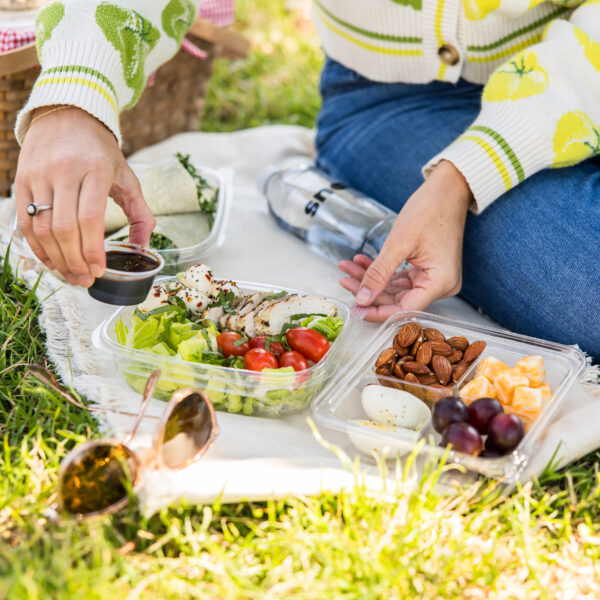Think back. I’m talking way, way back. Back to the early days of humanity when we were hunter-gatherers. At any waking (or sleeping) moment, our peace and solitude could be interrupted by predators, neighboring tribes, or freak weather. We constantly had to be present, ready for anything, on our toes.
We don’t deal with that so much now, with planned daily activities like a 9-5, picking up the kids from school and homework at the dinner table; our phones always by our side, lighting up for our attention. We’re in a time when being present like our ancestors seems world’s away.
The art of being present, or of practicing mindfulness, is one of those things that isn’t just your aunt’s crystals, or your Facebook friend’s essential oils. Mindfulness is the ability to remain present, in the moment, focused and open to the world around you. And it’s proven to be a legitimate therapy technique.
But, what do the experts have to say about practicing mindfulness?
1. Mind your breathing
Breathing exercises, a core component of meditation, have been shown to help ease anxiety and chronic pain, among other things.
Breathing exercises are the key to proper meditation and have shown promising results when done in controlled studies — like this one at the University of Michigan.
According to the Washington Post, “Anthony King, a clinical psychologist at the University of Michigan…says, ‘What’s important about our study . . . is that people with PTSD can also have this change in brain connectivity patterns when they do mindfulness practice,” says King. The more this connectivity increases as a result of mindfulness training, ‘the more their symptoms improve,’ he adds.”
In layman’s terms? Focus on your breathing and you’ll slow down your thought process just a little bit. Enough to start cutting through the noise.
2. Practice gratitude
Our minds are a busy place, full of constantly conflicting thoughts, all competing with each other for attention. But when you’re worried and living in a state of heightened anxiety, gratitude is often one of the first things to go out the window.
But according to Brené Brown, an acclaimed research professor at the University of Houston, practicing gratitude is the very thing that helps prevent us from what she calls “dress-rehearsing tragedy”.
“I think the best way to think about practicing gratitude is: Are you doing something that is tangible and observable?” says Brown. “In my family, we go around the table and take turns sharing one thing we’re grateful for that day. On birthdays, everyone shares one gratitude for the birthday person. At work, we put people’s names on large posters and ask everyone to write one gratitude on a sticky under each name. I also keep a journal and write down three things I’m grateful for almost every day. It’s more than just thinking of things we’re grateful for—it’s verbalizing them.”
3. Find some time to do nothing
Andy Puddicombe, a mindfulness expert, hosted a TED Talk in 2012 about the art of doing nothing. What does it mean to do nothing, you ask?
Well, as Puddicombe puts it, you’re not lost in thought, overwhelmed by emotions, or thinking about your to-do’s: you’re present and in the moment. Sounds easy, right?
But this is essentially what meditation is — familiarizing yourself with the present moment. It’s not about controlling the mind to stop thought, “it’s more about stepping back, seeing the thought clearly, witnessing it coming and going — emotions coming and going — without judgment, but with a relaxed and open mind,” says Puddicombe.
So even if it’s 10 minutes in the morning or right at the end of your day, take some time to take a step back and witness your thoughts coming and going — meditate, and begin again.
BONUS: Eat a well-balanced, nutrient-dense diet
This has happened to me before: in the middle of mindful meditation, my stomach gurgles and distracts me.
If you’re practicing mindfulness long-term, staying in the here and now can sometimes mean prepping tomorrow’s “you” for success so that you have a little less stress.
Whether you’re vegetarian, whole30, or anything in between, with Snap Kitchen, you can enjoy well-balanced, nutrient-dense meals, delivered to your door. Never frozen, made fresh daily, we only use high-quality ingredients and are always gluten-free, so you never have to worry. Check out one of our meal plans today!





Leave a Reply
No Comments